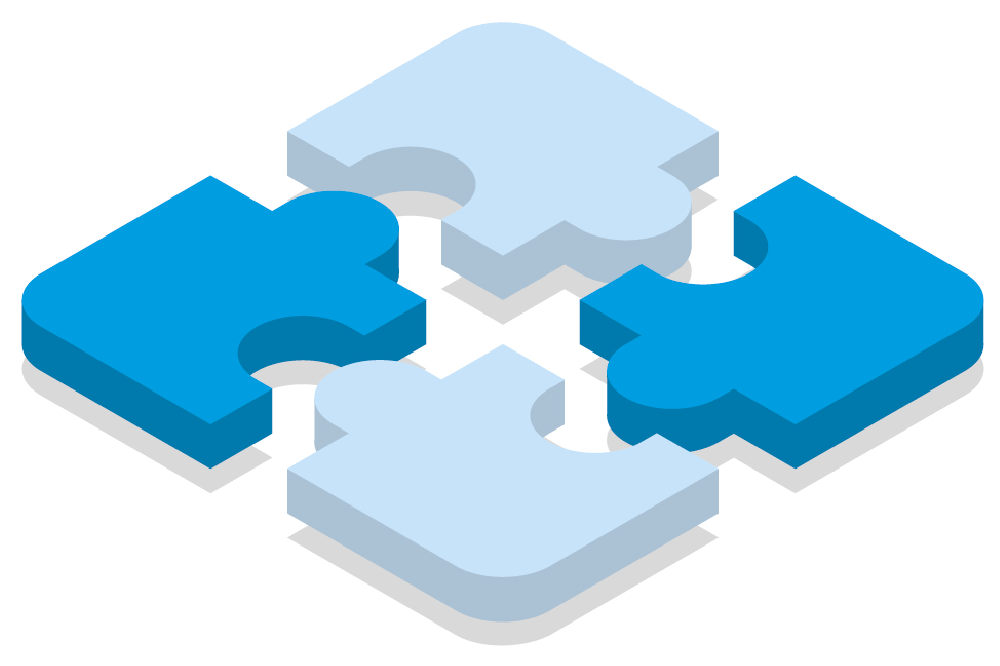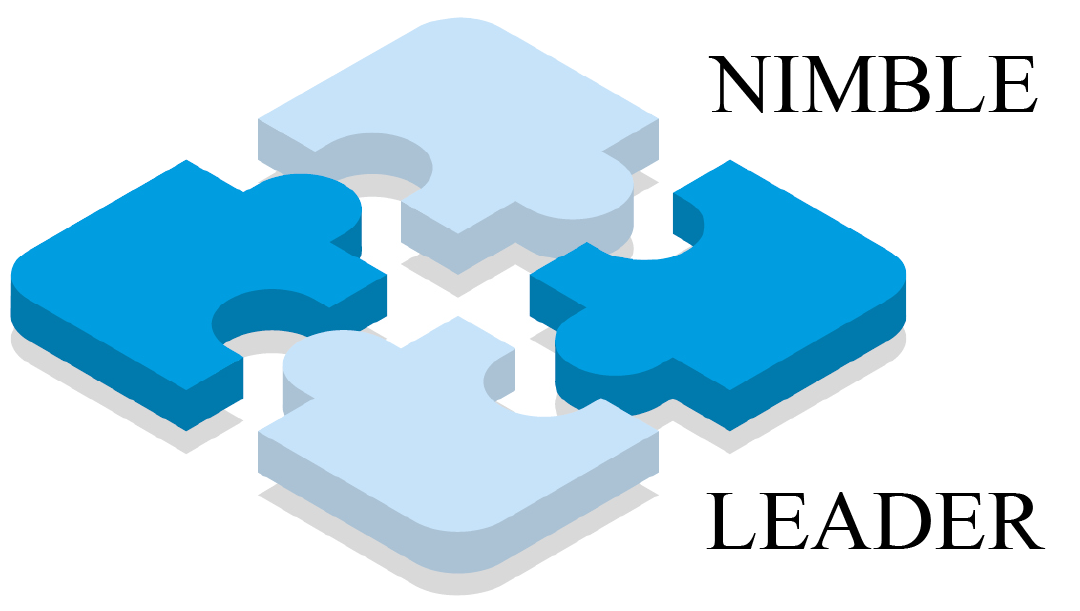That’s right, I am going to discuss an aspect of nimble leadership that I have not entirely mastered, leader wellness. As a result of walking the walk and learning the craft of leadership, I find myself rarely able to say no to a new challenge. As you gain momentum and wisdom, you gain insights and a calm state of mind that people can see and feel. They know instinctively that you can help them or take on much more of a load than you already have. In my various careers my answer to a request for help was always, yes.
Saying yes to every request, to every task, becomes a habit. A habit that has consequences. Family life suffers, physical health suffers, and mental health and wellness can suffer the most. This chapter reflects on what leaders like you, can do to avoid the pitfalls of stress, embrace techniques and disciplines, and improve your ability and capacity to live a well life, and still be a great leader.
You don’t have to do everything I suggest, there’s more than enough ideas here to counterbalance the oftentimes debilitating drive to succeed professionally. I only ask that you keep an open mind and consider your wellness for a few minutes. This chapter is not about aesthetics. Looking good in the gym or in a suit has value but not necessarily wellness value. I’m talking about getting off the clock, replenishing your vigor, and clearing your mind. Ready?
Stress Release the Old School Way
My dad was average in many ways, and in others not so much. He was a self-taught oil painter, a self-taught musician in five instruments, and could speak passable Vietnamese and Mandarin Chinese. Not bad for an Iowa farm kid who survived the great depression of the 1930s. My dad was, from outward appearances, a successful, middle-class, white-collar worker but the stress of that work drove him to seek relief in a bottle of bourbon on most nights.
He wasn’t alone. In the late Twentieth Century, alcohol and drugs were a way to relieve the pressure of life and work. It was also accepted as the way to do just that, relax. My dad was a high school and collegiate athlete who never worked out again after graduating with a degree in accounting. Exercising was for athletes and kids. Real adults suffered in silence and pretended to be well-adjusted by getting trashed on the weekends and tipping a few every night in between.
Oddly enough, my dad was also a student of the Orient. He’d spent time in Vietnam and in Japan and was fascinated by their cultures and their history. He read books about Asian religions, meditation, and even learned to cook Asian cuisine, but he never adopted any of the Asian systems for mental and physical relaxation and wellbeing. I often wonder what his life would have been like if he’d learned Tai Chi, or studied the strategy game, Go. Maybe took up yoga? My dad died too young, a victim of his choices. An intelligent and emotional man who never knew how to take it on the chin and let it go. He was old school until the end.
Now, my kids would say I’m old school too, maybe so, but not in the way my dad was. Perhaps I dodged the bullet because I saw the damage substance abuse, even if its only alcohol, can do to people, even strong people. I did drink heavily for the first few years in the Navy, but it was to be accepted by the older SEALs. They all drank, a lot, and didn’t trust anyone who didn’t imbibe with them. It was fun, not stress relief.
Most SEAL veterans had post-traumatic stress-disorder from multiple combat tours in Vietnam, even though PTSD wasn’t yet a diagnosed illness in the 1970s. Others were just bored with life. They missed the high-octane thrill of living and possibly dying in combat. Normal life was depressing, so they too drank to excess. Old school all the way. I had two habits that I’ve retained to this day. Habits that helped me to unwind. Reading and working out.
Escaping the World of Steel and Plastic
A park, a beach, a local field, a stand of trees, the mountains, if it doesn’t look and feel like your workplace, go there! We cycle back and forth between steel and plastic environments, manmade and sterile. We don’t even look outside at the beauty of nature as we drive to and from our work and home, and back again. We all need a break from sterile, especially busy leaders. Leaders need an infusion of nature from time to time to rest and reestablish a balance.
I’m not insisting you fly to an exotic location, the stress of planning, traveling, and the cost of a major trip, may be counterproductive for our purposes here. Keep it simple but frequent. The Japanese have long understood the peaceful and contemplative healing effect of nature. It doesn’t have to be much. A small garden will suffice. If you live in the city and can’t create a garden spot go to a public park and find a quiet corner. Soak it in and relax.
Physical Training
I was always a terrible long-distance runner. Give me a track, forty or one hundred meters long, and my family DNA kicked in as I torched the sprint distance. Go any farther and well, I sucked. The worst runner in SEAL training must still pass rigid time and distance tests every week or risk dismissal from the course. I passed the entry requirements for running by two seconds.
When I began running for fun it helped me to focus on other aspects of my heath such as diet, and smart hydration. I’ve learned that exercising regularly stimulates endorphins and in turn, endorphins give me a light euphoric feeling during and right after my workouts. I’ve learned how to moderate my workouts, so they are helpful and not destructive. Agility, mobility, some strength training, and a little endurance, these are my basic objectives. Oh yes, and to detox from my stressful career.
Your workouts can take many forms. I’ve joined bicycle spin clubs, participated in organized training programs in specialized gyms, and I’ve trained in Muay Thai, the ancient art of Thai boxing. These all took me outside of my normal environment and my comfort zone to both humble me and provide me with a physical and mental edge. You can exercise for as little as twenty minutes a day or longer if you have the time and the inclination. Having a smart diet coupled with appropriate exercise helps with all our modern medical issues such as Type II diabetes, high blood pressure, and other circulatory issues that may lead to heart disease and stroke.
You should set up a routine and stick to it. Mine looks like this; my alarm goes off at five fifteen each morning, I get up, make a cup of coffee, and feed our cats. By five thirty I’m at the table pounding the keyboard for an hour. When I finish writing, I get some water and begin to exercise. A ten-mile mountain bike ride takes me forty-five minutes. A vigorous twenty-five minute treadmill walk with an incline is followed up with five to ten minutes on the rower. I rotate these two cardio programs every couple of days and inject body weight and light dumbbell routines to keep my core strong.
My routine gets two key items off my personal wellness list at the beginning of my day. I love to write, and it is a form of escape and meditation for me. It flexes my mind in creative ways and it doesn’t feel like problem solving. The physical training checks the health and mental distraction boxes. I don’t allow myself to think about work or other challenges when I work out. I use the time to focus on my needs. Can’t pack in a workout starting at five? Start at four or do it during lunch.


Recent Comments